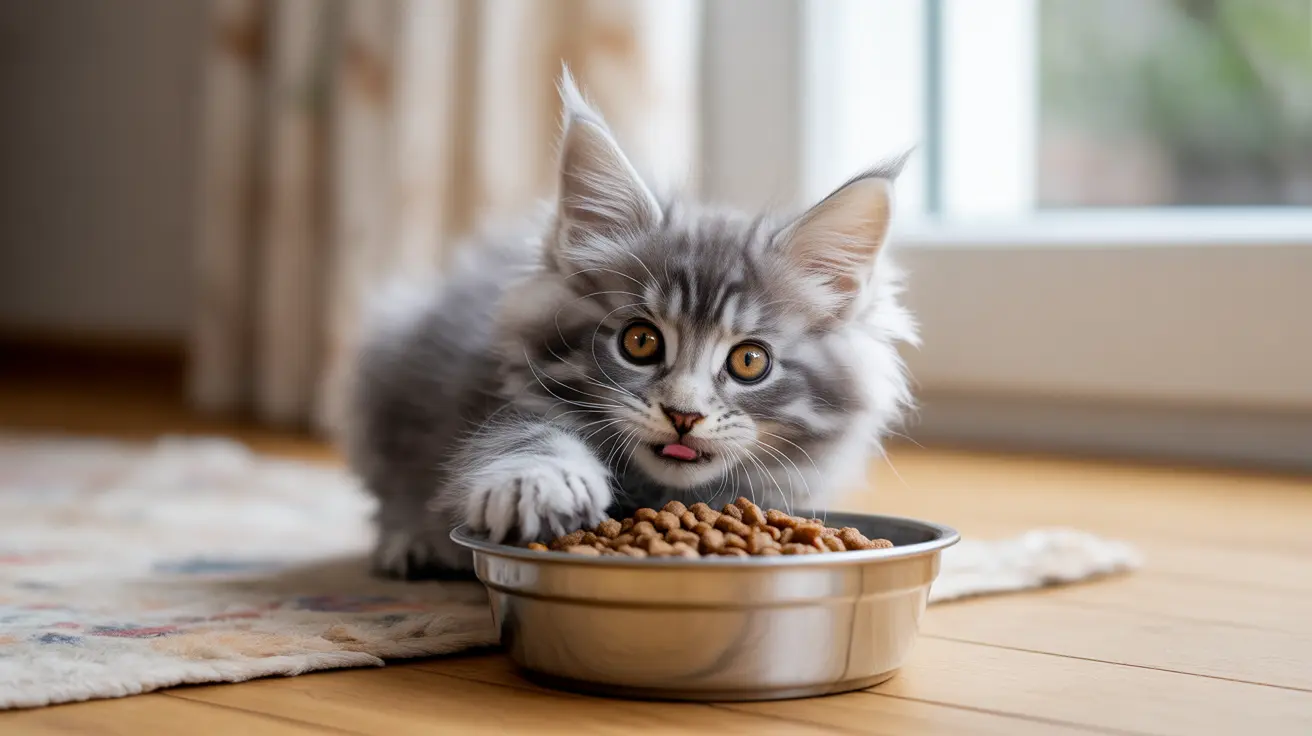Normal Reasons for Your Kitten's High Appetite
During the first year of life, kittens experience explosive growth and development. Their bodies require significant energy to support this rapid change, making frequent hunger a perfectly normal occurrence. A kitten's metabolism runs at an incredibly high rate - up to three times faster than an adult cat's - to fuel their growth, play, and learning.
Additionally, kittens have tiny stomachs but high energy needs, necessitating frequent meals throughout the day. Think of them as high-performance engines that need regular refueling to maintain optimal function.
Understanding Proper Feeding Practices
Many kitten owners unknowingly underfeed their pets, leading to increased hunger signals. A properly structured feeding schedule typically includes 3-4 meals daily for kittens under six months of age, with appropriate portion sizes based on their weight and age.
High-quality kitten food is essential, as it's specially formulated with the extra proteins, fats, and nutrients needed for healthy development. Adult cat food simply won't provide the necessary nutritional requirements for a growing kitten.
Health-Related Causes of Increased Appetite
Sometimes, excessive hunger can signal underlying health issues. Common medical causes include:
- Intestinal parasites (especially common in young kittens)
- Digestive disorders affecting nutrient absorption
- Metabolic conditions (though rare in kittens)
- Growth-related increased caloric needs
If your kitten's increased appetite is accompanied by weight loss, diarrhea, or other concerning symptoms, it's important to consult with your veterinarian promptly.
Behavioral Factors Affecting Appetite
Not all hunger signals are related to actual nutritional needs. Kittens may display food-seeking behaviors due to:
- Boredom or lack of environmental enrichment
- Learned behaviors for attention-seeking
- Competition with other pets
- Stress or anxiety in their environment
Creating a Healthy Feeding Routine
Establishing proper feeding habits early on helps ensure your kitten's optimal health and development. Consider these key strategies:
- Measure portions accurately using a kitchen scale
- Stick to a consistent feeding schedule
- Use appropriate kitten-specific food
- Provide environmental enrichment through toys and play
- Monitor weight gain and growth regularly
Frequently Asked Questions
Why is my kitten always hungry and how much should I be feeding them daily?
Kittens need roughly 2-3 times more calories per pound than adult cats. The exact amount depends on age, weight, and activity level, but typically ranges from 1/3 to 1 cup of kitten food daily, divided into 3-4 meals.
Could my kitten's constant hunger be a sign of parasites or other health problems?
Yes, excessive hunger accompanied by weight loss, bloating, or diarrhea could indicate parasites or other health issues. Regular deworming and veterinary check-ups are essential for growing kittens.
How often and in what portions should I feed my kitten to keep them satisfied?
Kittens under six months should eat 3-4 times daily, with portions based on their weight and food type. Follow package guidelines and adjust based on your veterinarian's recommendations.
Can boredom or environmental changes cause my kitten to act hungry even if they are eating enough?
Yes, kittens may display food-seeking behavior due to boredom, stress, or attention-seeking. Ensure adequate playtime and environmental enrichment to reduce these behaviors.
When should I consult a vet if my kitten seems hungry all the time but is not gaining weight?
Consult a veterinarian immediately if your kitten shows excessive hunger while failing to gain weight, or if they display additional symptoms like lethargy, diarrhea, or vomiting.
Conclusion
While a hungry kitten is often normal due to their rapid growth and development, understanding the difference between healthy appetite and potential problems is crucial. By maintaining proper feeding practices, monitoring growth, and staying alert to unusual symptoms, you can ensure your kitten receives the nutrition they need for healthy development.
Remember that each kitten is unique, and what works for one may not work for another. When in doubt, always consult with your veterinarian to create the best feeding plan for your growing feline friend.






